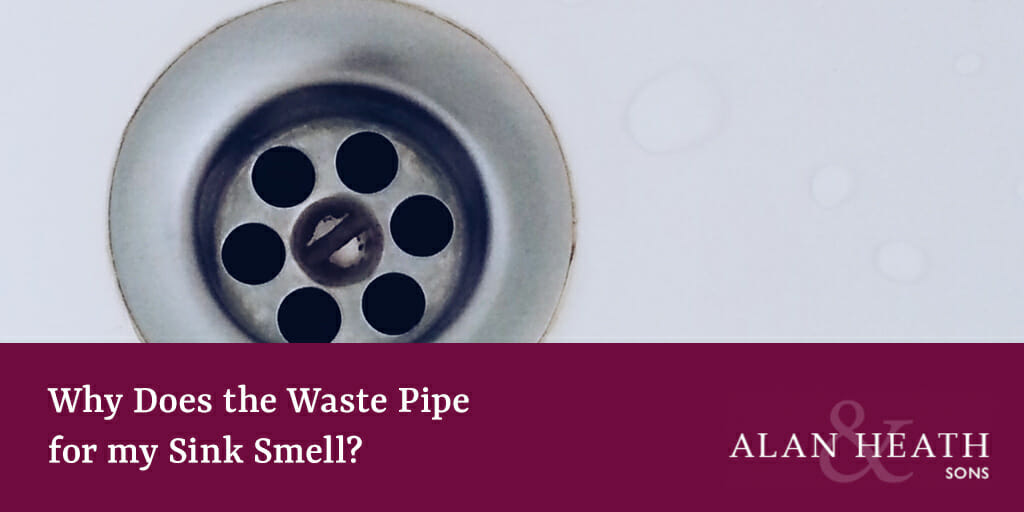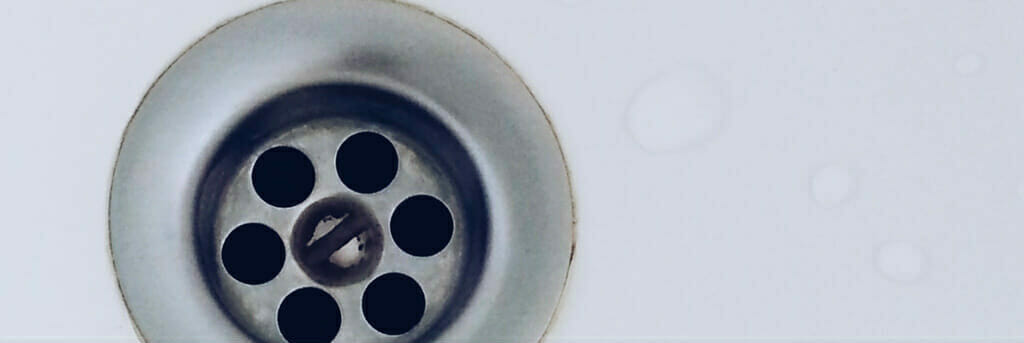 There comes a time in every bathroom’s life when your waste pipe starts to smell. Well, not every bathroom perhaps, but definitely the large majority. You might notice that your basin starts draining more slowly and your pipes are blocked too. So, what’s causing it?
There comes a time in every bathroom’s life when your waste pipe starts to smell. Well, not every bathroom perhaps, but definitely the large majority. You might notice that your basin starts draining more slowly and your pipes are blocked too. So, what’s causing it?
What’s causing your blocked pipe?
Over the years we’ve had many conversations with customers who are insistent that they never put anything down their bathroom basin except water, soap, and toothpaste. They are often surprised when we explain that that may still have been the cause. As any plumber will tell you, there is usually something else – some tissue, cotton wool, even hairgrips, that have added to the problem. But even they, alone, won’t cause the blockage.
As you wash your hands and clean your teeth, various substances are washed down the plug hole. Remnants of your toothpaste, spit, soap, and lotions will cling to your pipes, and build up, catching larger pieces of hair and so on, to cause a clog. The bacteria on these will thrive, creating a black slime in your pipes – and that horrible accompanying smell.
Is the design of my bathroom causing blocked pipes?
It makes sense that the more turns and bends in a pipe, the more places there are for substances heading down your pipes to catch and build up. The ideal pipe would be one that has a long vertical drop, so that all that waste heads directly into the drains, followed by a large flush of cleaning water. But, in any bathroom basin there obviously has to be some turns in the pipe before the waste can get outside to the drains.
By reducing the number of bends, we can keep the water moving along at speed, sweeping any additional substances with them. Where bends are needed, it’s preferable to use a swept bend rather than a knuckle elbow, creating fewer tight corners.
If we understand that the greater fall you have on your waste pipe, the better it will drain, we can start to identify where blockages are more likely to occur. The more minimalistic the shower tray, for example, the less space there is underneath it for a fall in the pipes. Of course, building regulations do give a minimum requirement for a fall, but the more we can give over that, the better.
Another consideration with shower trays will be the angle of the slope in the tray itself, along with the height of the walls. The steeper the slope, the faster the water will be pushed down the plug hole and along the pipe.
A long run of waste pipe will also be more likely to clog, particularly if the angle of the fall is very shallow. Water will drain slowly away, giving it more time to leave deposits that eventually build up.
Your plumber will also need to check that too many waste pipes are not emptying into the same drain at the same time. When pipework is not run correctly it can create a vacuum, sucking the water out of the traps and exposing the deposits left there to air – at which point the smells are released.
Even after the wastewater has left the bathroom itself, it needs to reach the main sewer. Waste pipes outside of the house also need to be maintained, ensuring they are well supported and not allowed to sag, which of course creates slopes and corners to slow the water flow and catch deposits.
What can you do to keep your pipes clean?
There are some obvious ways to care for your plumbing and prevent your pipes from becoming blocked. Teach children not to put anything down the sink that shouldn’t be there, such as tissues. When you are cleaning your teeth, make sure you allow some clean water to flow down and help that toothpaste along the pipes. And, regularly clean your pipes with some sort of cleaner.
We have seen recommendations online that suggest you send a concoction of ½ cup baking soda and ½ cup vinegar down your pipes, followed 15 minutes later by a gallon of hot water, on a weekly basis. We cannot comment on how well this would work, although a weekly clean does seem excessive, but we like the idea of using natural products. You can also buy chemical and enzyme cleaners that you can use if you are finding blockages or for a regular clean.
Cleaning your bathroom basin and shower tray regularly will also help, as it will help the water to flow out quicker, just as water flows off a polished car and doesn’t stick as much.
Where your bathroom is not used as often, as in a guest room, the water can evaporate from the traps. Just running the taps regularly will help keep the traps replenished.
Finally, the best way to reduce the likelihood of blocked pipes in your bathroom is to have your pipework installed properly by a professional. Our design team has all the expertise in-house to ensure that when we design your new bathroom, we take the fall of your pipes and drainage from your basin into account from the start.
To talk to our design team, please call us on 024 7669 1469 or visit our website to find out more about how we can help you using our 50 years of bathroom design experience.

